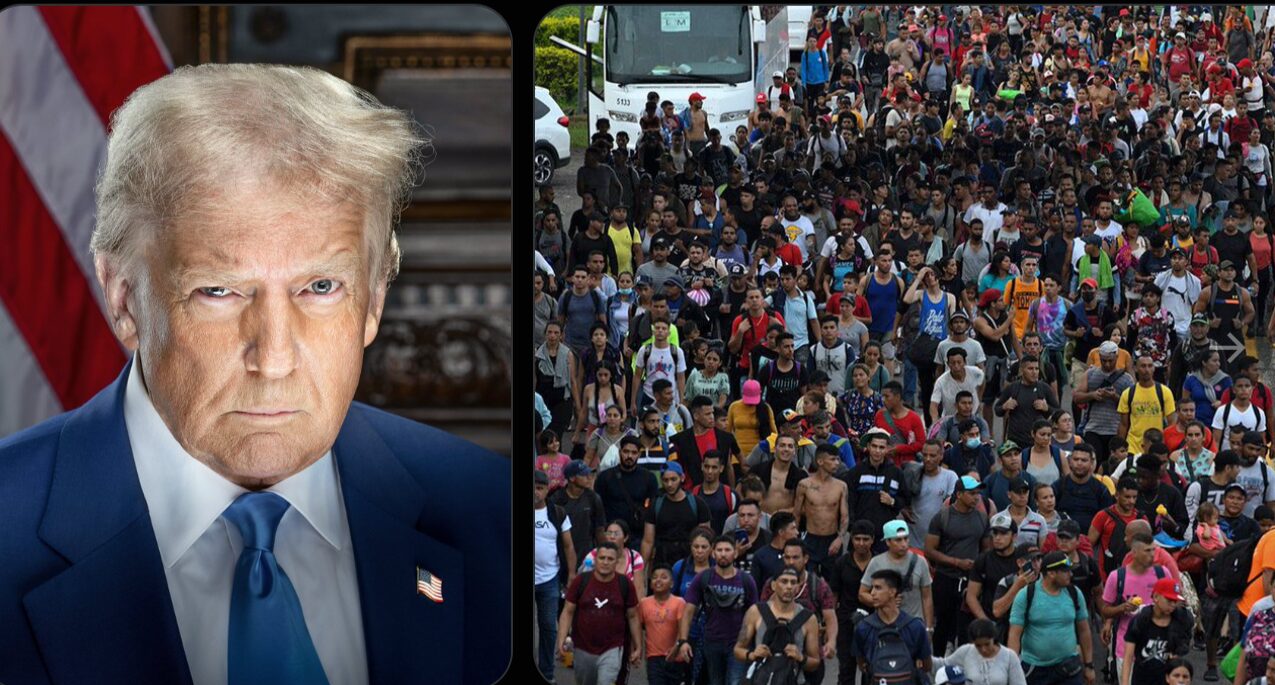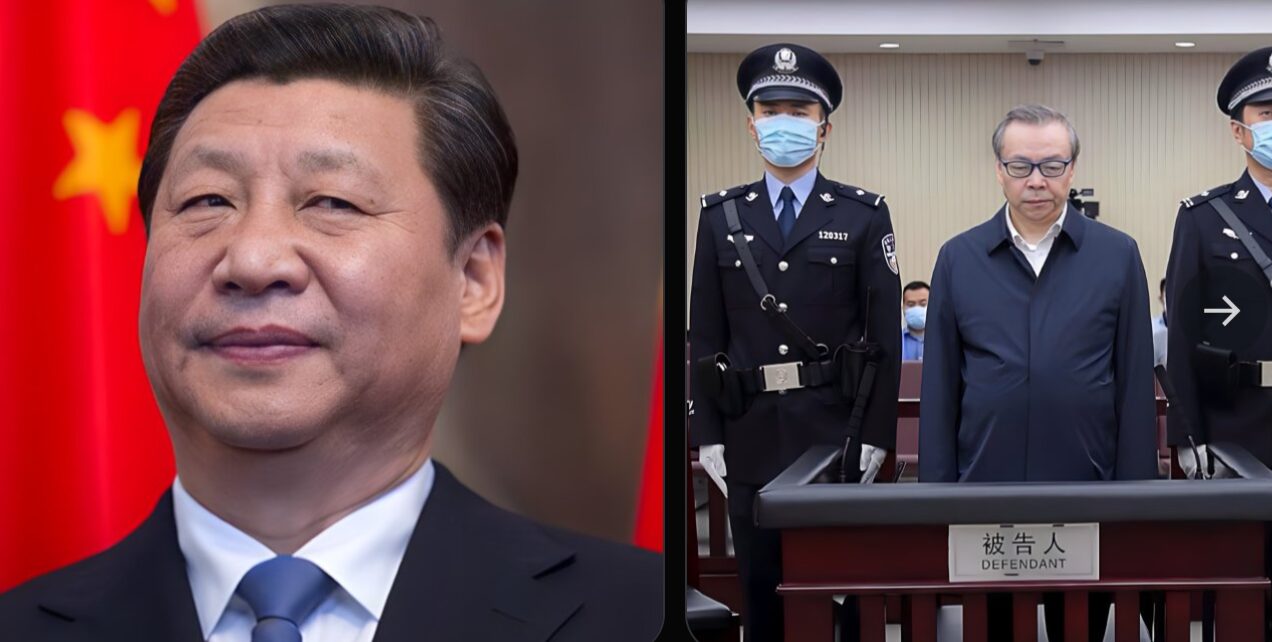President-elect Trump to begin largest deportation operation in US history next Tuesday
In a move that has shocked both supporters and critics alike, President-elect Donald Trump is set to initiate what is being described as the largest deportation operation in U.S. history starting next Tuesday. The operation, which follows through on one of Trump’s key campaign promises, aims to deport millions of undocumented immigrants living in the United States. This unprecedented action is expected to have significant implications for the immigrant community, law enforcement agencies, and the broader political landscape in America. As the operation looms, questions about its effectiveness, legality, and the broader impact on American society are generating intense debate. Here’s what you need to know about the upcoming deportation operation and its potential consequences.
Trump’s Campaign Promise to Combat Illegal Immigration
Throughout his 2016 presidential campaign, Donald Trump made illegal immigration a central issue, vowing to build a wall along the southern border and implement strict measures to remove undocumented immigrants from the U.S. His tough stance on immigration helped rally his supporters and contributed significantly to his election victory. One of his most notable promises was to deport millions of immigrants living in the country without proper documentation, a promise that he is now set to fulfill. The plan has sparked heated discussions across the country, with many fearing the operation could lead to family separations, economic disruption, and violations of human rights.
The Scope of the Deportation Operation
According to sources close to the incoming administration, the deportation operation will target individuals who have entered the U.S. illegally, as well as those who have overstayed their visas. The primary goal of the operation is to enforce immigration laws more strictly, but its scale and intensity have raised significant concerns. Estimates suggest that the operation could involve the removal of millions of individuals, potentially making it the largest mass deportation in U.S. history. The Department of Homeland Security (DHS) is reportedly preparing for a nationwide crackdown, with increased collaboration between federal, state, and local law enforcement agencies. This is expected to involve a variety of methods, including raids, detentions, and expedited deportations.
Concerns About Humanitarian and Legal Impacts
Critics of the operation argue that the scale and speed of the deportations could result in significant humanitarian crises. Family separations are a major concern, as many individuals who are undocumented have children who are U.S. citizens. These separations could have long-term emotional and psychological consequences for both the children and their parents. Additionally, the speed of the deportation process has led to fears that due process may be sacrificed, with some individuals being deported without proper hearings or the ability to appeal their cases. Legal experts and immigration advocates are warning that the operation could lead to violations of constitutional rights and due process protections.
Public Reaction and Political Debate
The announcement of the deportation operation has triggered a wide range of reactions across the U.S. Supporters of President-elect Trump have hailed the move as a long-overdue step toward securing the country’s borders and ensuring that immigration laws are enforced. For them, the operation represents a victory for law and order, as well as a fulfillment of Trump’s promises to address illegal immigration. On the other hand, opponents view the operation as a cruel and unnecessary measure that will harm vulnerable communities, disrupt families, and sow division within the country. There are concerns that the operation could create widespread fear among immigrant populations, leading to further isolation and distrust between communities and law enforcement.
The political ramifications of this operation are also significant. Many Democratic lawmakers have vowed to resist the deportation efforts, advocating for more compassionate immigration policies that prioritize family unity and the protection of human rights. Some states and cities have even adopted “sanctuary” policies, which limit cooperation with federal immigration authorities in an attempt to protect undocumented residents from deportation. These tensions are likely to escalate as the deportation operation unfolds, with significant legal and political battles expected over the coming months.
Economic and Social Impacts of Mass Deportation
Beyond the legal and humanitarian concerns, the mass deportation operation could also have far-reaching economic and social consequences. Immigrants play a vital role in many sectors of the U.S. economy, particularly in agriculture, construction, and service industries. The removal of millions of workers could lead to labor shortages, potentially disrupting industries that rely heavily on immigrant labor. This could lead to higher costs for businesses, as well as a decline in productivity. Additionally, the operation could result in a decrease in tax revenue, as many undocumented immigrants contribute to the economy through sales taxes, property taxes, and other indirect means.
Socially, the deportation operation could deepen divisions in American society. Immigrant communities, particularly those with large numbers of undocumented individuals, may feel targeted and marginalized by the government. This could lead to increased tension between immigrants and the broader public, potentially fostering an environment of distrust and fear. On the other hand, supporters of the operation argue that it is necessary to uphold the rule of law and ensure that those who violate immigration laws are held accountable for their actions.
Looking Ahead: What’s Next for Immigration Policy?
As President-elect Trump prepares to take office, the fate of the largest deportation operation in U.S. history remains uncertain. It is clear that the incoming administration is determined to fulfill its campaign promises, but how the operation will unfold and what its long-term consequences will be are still to be seen. Immigration reform advocates are pushing for more humane policies that focus on pathways to citizenship, family reunification, and protection for vulnerable populations. However, with the Trump administration’s focus on stricter immigration enforcement, it remains to be seen whether such reforms will gain traction.
In the coming days and weeks, the public will be watching closely as the deportation operation begins. The consequences of this operation will not only impact the lives of millions of undocumented immigrants but also shape the future of U.S. immigration policy and the broader political landscape. As the nation grapples with these challenges, it is clear that the issue of immigration will continue to be a central and divisive topic in American politics for the foreseeable future.

















Post Comment